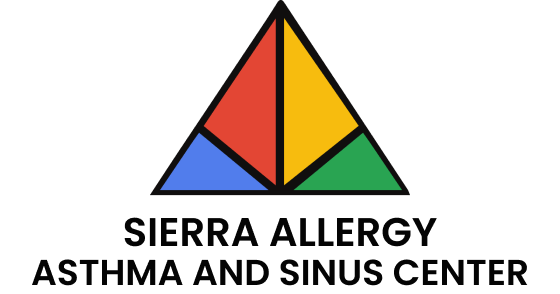Allergies are common among children, but as a parent, knowing how to handle them can make all the difference in your child’s health and comfort. Whether it’s a food allergy, seasonal pollen sensitivity, or reactions to pet dander, allergies can disrupt daily life. Thankfully, there are effective treatments available that can help. In this article, we’ll explore five essential allergy treatments every parent should know about, empowering you to make informed decisions for your child’s health.
1. Over-the-counter (OTC) antihistamines
Antihistamines are often the first line of defense when it comes to treating allergic reactions. They work by blocking histamine, a chemical in the body that is released during an allergic reaction. Histamines are responsible for causing symptoms like sneezing, itching, and runny noses.
Why they work
For mild to moderate allergic reactions, such as seasonal allergies (hay fever), OTC antihistamines can provide quick relief. They’re available in different forms, including syrups for younger children and tablets for older kids and teens. Popular options include cetirizine (Zyrtec), loratadine (Claritin), and diphenhydramine (Benadryl).
When to use them
These medications are best used for short-term allergy flare-ups. If your child experiences daily allergy symptoms, it’s important to consult with an allergy specialist to ensure you’re using the right treatment plan.
Tip
Be sure to consult your child’s pediatrician before starting any new medication, and carefully follow dosing instructions.
2. Allergy immunotherapy (Allergy shots or drops)
If your child’s allergies are more severe or persistent, immunotherapy may be recommended by an allergist or doctor of allergy immunology. This long-term treatment helps your child’s immune system build tolerance to specific allergens over time. Immunotherapy can be administered as allergy shots or under-the-tongue drops (sublingual immunotherapy).
How it works
By introducing small amounts of the allergen into your child’s body over time, their immune system gradually becomes desensitized to it. This reduces the severity of allergic reactions and can even eliminate allergies altogether for some kids.
Best for
Children with severe environmental allergies (like pollen, mold, or dust mites) or insect sting allergies often benefit the most from immunotherapy. It’s also a solution for children who can’t get relief from allergy medications alone.
Considerations
Immunotherapy requires a commitment, as it often takes 3-5 years of consistent treatment to see lasting results. While it’s a time investment, many parents find it’s worth it for the long-term relief it brings their child.
3. Inhalers for asthma-related allergies
Asthma and allergies often go hand in hand. If your child suffers from both, they may experience allergy-induced asthma, where exposure to allergens triggers asthma symptoms like coughing, wheezing, and shortness of breath. Inhalers are a key part of managing these symptoms.
Types of inhalers
There are two main types of inhalers that can be prescribed by a doctor of allergy immunology:
Quick-relief (rescue) inhalers
These provide immediate relief during an asthma attack by relaxing the muscles in the airways.
Long-term control inhalers
These are used daily to reduce inflammation in the lungs and prevent asthma attacks from occurring.
Why they matter
For children with allergic asthma, controlling symptoms is crucial to ensure they can breathe easily and live an active life. Working with an asthma specialist or allergist can help you identify the right inhaler and treatment plan for your child.
Pro Tip
Make sure your child knows how to properly use their inhaler. An allergist can offer guidance and demonstrations, ensuring the medication is most effective.
4. Epinephrine for severe allergic reactions (Anaphylaxis)
If your child has a food allergy, or is allergic to insect stings, latex, or certain medications, you’ll want to be familiar with epinephrine. This life-saving treatment is used to stop a severe allergic reaction (anaphylaxis) in its tracks.
How epinephrine works
An epinephrine auto-injector, like an EpiPen, is designed to deliver a dose of adrenaline that helps reverse the symptoms of anaphylaxis. This includes difficulty breathing, swelling, and a sudden drop in blood pressure. Every second counts during a severe allergic reaction, so it’s important to administer the injection right away.
Who needs it
Any child with a known risk of severe allergic reactions should carry an epinephrine auto-injector at all times. Many schools and daycare centers require students to have one on hand in case of emergencies.
Important steps
After using epinephrine, always call 911 or take your child to the nearest emergency room, as they may need further monitoring. An allergist will teach you how and when to use the auto-injector, and how to keep your child safe from allergens.
5. Nasal sprays and eye drops for localized symptoms
Sometimes, allergy symptoms are more localized, affecting just the eyes or nose. In these cases, nasal sprays and eye drops can provide targeted relief without affecting the rest of your child’s body.
Types of nasal sprays
- • Steroid nasal sprays (like Flonase or Nasonex) reduce inflammation in the nasal passages and can be used long-term for chronic allergies.
- • Decongestant nasal sprays (like Afrin) provide quick relief but shouldn’t be used for more than a few days to avoid rebound congestion.
Eye drops for itchy eyes
Antihistamine eye drops are a good option for children who suffer from itchy, watery eyes due to allergies. They can provide fast relief without the drowsiness associated with some oral medications.
When to use them
These treatments are ideal for managing milder, localized symptoms. For instance, if your child only experiences itchy eyes during spring or fall, allergy eye drops may be all they need for relief.
Conclusion
Knowing about these allergy treatments is just the first step in managing your child’s health. The next, and arguably the most important, is working with an allergy specialist. Whether it’s finding the right over-the-counter medicine or considering long-term treatments like immunotherapy, an allergist or doctor of allergy immunology will guide you through the process with a tailored treatment plan.
Caring for your child’s allergies doesn’t have to be overwhelming. By understanding these five common treatments and knowing when to seek help from a specialist, you’ll be able to manage your child’s symptoms and give them the comfort and relief they deserve. Remember, caring for yourself and your loved ones is a journey, and your trusted allergist is here to help.





